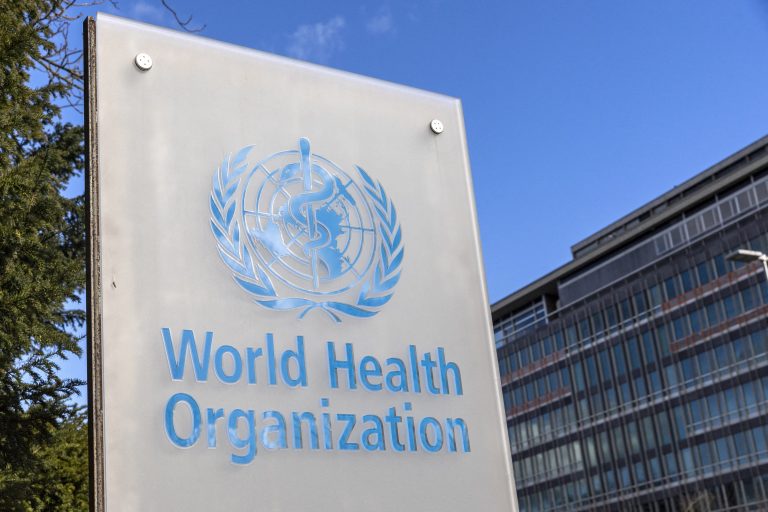
In a move that cements China’s rising influence in global health diplomacy, Vice Premier Liu Guozhong announced on Tuesday that Beijing would provide an additional $500 million to the World Health Organization (WHO) over the next five years.
The pledge, made during the annual World Health Assembly in Geneva, follows the United States’ formal withdrawal from the organization and leaves it scrambling to fill a gaping financial void once covered by Washington.
The development not only alters the power dynamics within the United Nations’ health agency but also underscores the tangible effects of President Donald Trump’s enduring “America First” doctrine, which continues to drive a retreat from multilateral institutions and global cooperation.
Register for Tekedia Mini-MBA edition 19 (Feb 9 – May 2, 2026).
Register for Tekedia AI in Business Masterclass.
Join Tekedia Capital Syndicate and co-invest in great global startups.
Register for Tekedia AI Lab.
With the U.S. no longer participating in the WHO, China is stepping into the leadership vacuum.
“The world is now facing the impacts of unilateralism and power politics bringing major challenges to global health security,” Liu said in his address to delegates. “Multilateralism is a sure pass to addressing difficulties.”
The statement was a veiled criticism of Washington’s growing disengagement from international bodies, with China positioning itself as a champion of global health cooperation.
The WHO is facing a 21% reduction in its 2026–2027 budget, now revised to $4.2 billion, due largely to the financial shortfall triggered by the U.S. withdrawal. On the first day of Trump’s presidency, his administration formally pulled out from the agency, ending decades of American leadership and contributions that had made the U.S. the WHO’s single largest donor.
To mitigate the financial crisis, WHO member states have adopted a new budget that increases mandatory fees by 20% over the next two years. China, with its fresh commitment and the increased assessed contributions, is now the WHO’s largest state donor. However, it is unclear whether the $500 million from Beijing includes the new mandatory fee or is entirely voluntary.
WHO Director-General Dr. Tedros Adhanom Ghebreyesus previously warned that the funding gap—estimated at $1.9 billion—was already impacting healthcare in at least 70 countries, leading to the shutdown of health facilities, layoffs of health workers, and rising out-of-pocket costs for patients.
Kennedy’s Rebuke of the WHO
Cementing Washington’s decision, U.S. Health and Human Services Secretary Robert F. Kennedy Jr. appeared in a pre-recorded video played to the assembly, where he lambasted the WHO as “moribund” and bloated with bureaucracy.
“We don’t have to suffer the limits of a moribund WHO,” Kennedy said. “Let’s create new institutions or revisit existing institutions that are lean, efficient, transparent, and accountable.”
Kennedy, an environmental lawyer and vocal vaccine skeptic, went further to urge other countries to follow Washington’s example.
“I urge the world’s health ministers and the WHO to take our withdrawal from the organization as a wake-up call,” he said. “We’ve already been in contact with like-minded countries and we encourage others to consider joining us.”
His remarks, aired shortly after WHO member states adopted a new pandemic agreement aimed at improving preparedness for future global health emergencies, drew no applause. Delegates reportedly watched in silence.
Kennedy dismissed the newly adopted accord as a document that would “lock in all the dysfunctions of the WHO pandemic response,” reinforcing a growing anti-globalist sentiment in the Trump administration.
The Tide Turns
This moment marks a clear turning point in the balance of global health leadership. For decades, the WHO served as a space where the United States exercised soft power through funding, expertise, and policy influence. With Washington stepping away, China is actively moving in, not only to provide financial support but also to shape the narrative around global cooperation and multilateralism.
The Trump administration’s posture, rooted in a worldview that prioritizes national sovereignty over global alliances, is reorienting America’s role in international institutions. For the WHO, this means adapting to a new reality where China is no longer just a stakeholder, but a leader.
The WHO’s next chapter, shaped by new funding sources and a shifting geopolitical backdrop, is likely to reflect Beijing’s values on global cooperation, marking a major reconfiguration of influence in one of the world’s most critical health institutions.
However, the rise of China as the WHO’s top funder raises questions about the future of multilateral health governance and the direction of the organization’s priorities. Critics of Beijing’s growing role worry about transparency and political influence, while advocates say its support is vital to ensure the WHO survives a period of unprecedented financial strain.



